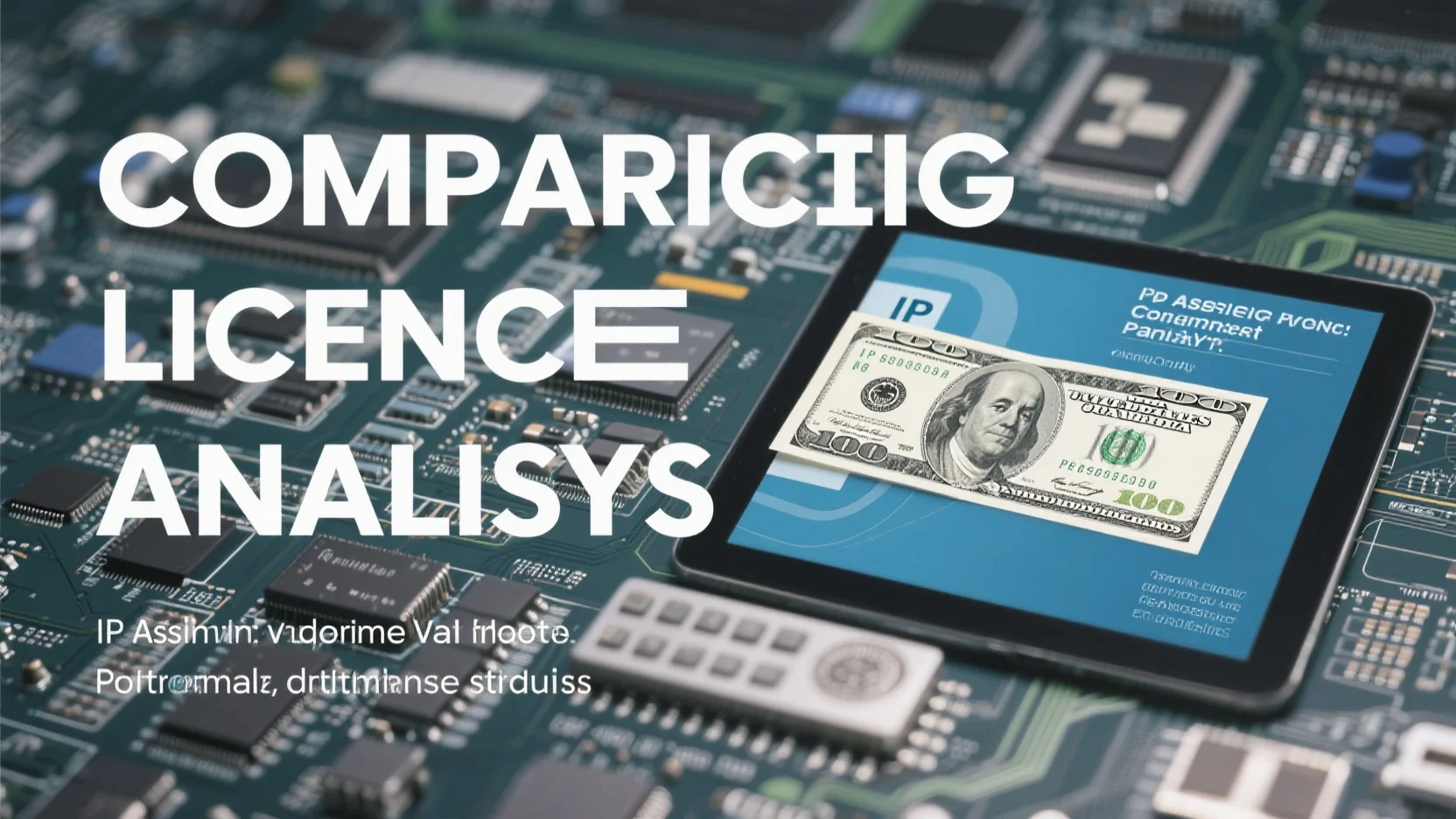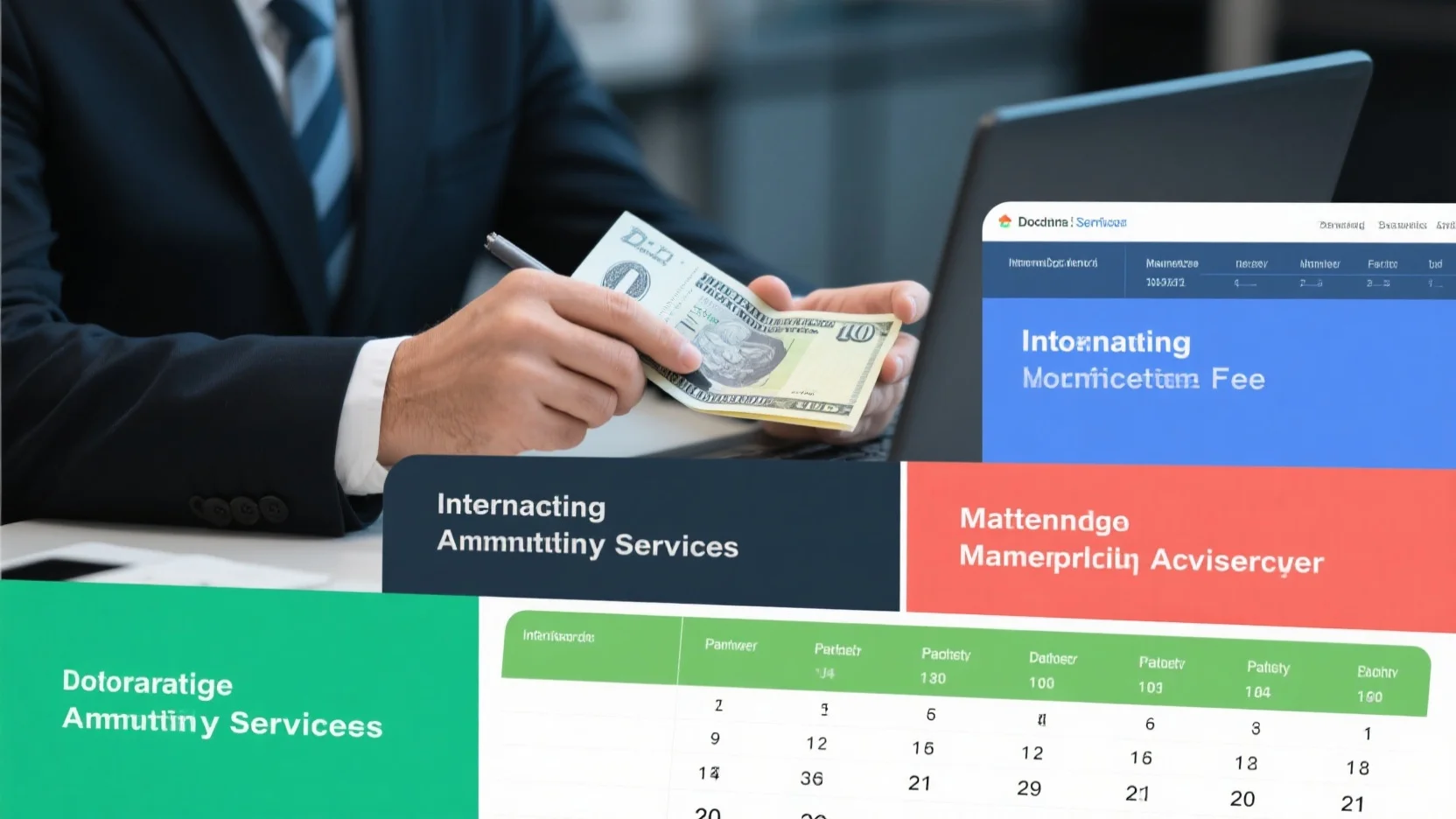In the cut – throat world of patent law, marketing is not just an option; it’s a necessity. A 2023 SEMrush study reveals that law firms with comprehensive marketing strategies are 70% more likely to boost client acquisition. According to Ahrefs and Google, optimizing your online presence through SEO, PPC, content, and social media is crucial. Premium marketing tactics can help you stand out from counterfeit models. Discover the top 5 ways to attract new clients, and benefit from our Best Price Guarantee and Free Installation Included (for eligible digital services) as local patent attorneys looking to expand their reach.
Patent Attorney Marketing Tactics
In the highly competitive landscape of patent law, effective marketing is essential for patent attorneys and firms to stand out and attract new clients. According to a SEMrush 2023 Study, law firms that implement comprehensive marketing strategies are 70% more likely to see a significant increase in client acquisition.
AI – driven marketing tools
AI – driven marketing tools are revolutionizing the way patent attorneys market their services. These tools can analyze large amounts of data to identify potential clients, optimize marketing campaigns, and personalize content. For example, some AI – based platforms can predict which prospects are most likely to convert based on their online behavior, allowing attorneys to focus their efforts on high – value leads.
Pro Tip: Incorporate AI – powered chatbots on your website. They can answer frequently asked questions from potential clients 24/7, improving user experience and increasing the chances of lead conversion.
Email marketing
Email marketing remains a powerful tool for patent attorneys. A law firm specializing in trademarks and patents, MyBrandMark.com, found email marketing to be its most successful promotion method. By sending regular newsletters with industry updates, case studies, and legal advice, attorneys can build relationships with existing and potential clients.
Pro Tip: Segment your email list based on client interests, engagement level, and demographics. This allows you to send more targeted and relevant content, increasing the likelihood of client response.
Customized digital marketing solutions
SEO services
Search engine optimization (SEO) is crucial for patent attorneys as it ensures that their websites rank higher in search engine results pages (SERPs) when potential clients search for IP and patent services. SEO is a cost – effective lead – generation channel. However, it takes time to see results compared to PPC.
As recommended by SEMrush, conduct regular keyword research using tools like Ahrefs to identify relevant high – traffic, low – competition keywords in the patent law space.
Pro Tip: Optimize your website’s on – page elements, such as meta tags, headings, and content, with targeted keywords to improve its searchability.
PPC
Pay – per – click (PPC) campaigns are a great way to get instant traction. Strategic PPC campaigns target businesses actively seeking IP legal services. Our campaigns consistently outperform industry averages, delivering conversions exceeding 100% compared to the standard 3.75% conversion rate.
ROI calculation example: If you spend $1000 on a PPC campaign and generate $5000 in revenue from the clients acquired through the campaign, your ROI is ($5000 – $1000) / $1000 * 100% = 400%.
Pro Tip: Use Google Trends for keyword research in PPC campaigns. It allows you to see what the world is searching for and identify trending keywords related to patent law.
Web design
A well – designed website is essential for patent attorneys. It should be user – friendly, mobile – responsive, and showcase the firm’s expertise. According to Google’s official guidelines, mobile – first indexing is important, and using Google’s Mobile – Friendly Test can ensure your site meets the standards.
Pro Tip: Include client testimonials and case studies on your website to build trust with potential clients.
Building relationships
Building strong relationships with existing and potential clients is fundamental. By providing excellent legal services, offering valuable resources, and maintaining regular communication, attorneys can foster loyalty and generate word – of – mouth referrals. For example, a client who was highly satisfied with an attorney’s invalidity searching services recommended the attorney to other businesses in the industry.
Pro Tip: Host client appreciation events, either in – person or online, to strengthen relationships and show your gratitude.
Networking and Business Development on Social Media
Social media platforms can be powerful tools for networking and business development. Patent attorneys can use platforms like LinkedIn to create a company page, share industry insights, and connect with potential clients and partners. For instance, an IP firm with a strong LinkedIn presence can attract the attention of startups looking for patent protection.
Pro Tip: Join relevant LinkedIn groups and participate in discussions. This can increase your visibility and position you as an expert in the field.
Customized IP marketing strategy
Every patent attorney or firm is unique, and a customized IP marketing strategy is necessary. It should take into account the firm’s target audience, practice areas, and business goals. A one – size – fits – all approach will not be as effective.
Pro Tip: Regularly review and update your marketing strategy based on the latest industry trends and the performance of your marketing campaigns.
Key Takeaways:
- AI – driven marketing tools can analyze data to identify potential clients and optimize campaigns.
- Email marketing is effective when personalized and segmented.
- Customized digital marketing solutions, including SEO, PPC, and web design, are essential for online visibility.
- Building relationships and networking on social media are important for business development.
- A customized IP marketing strategy tailored to your firm’s needs is crucial for success.
Try our patent marketing effectiveness calculator to evaluate how well your current marketing tactics are performing.
Importance of Marketing for Patent Attorneys
In today’s legal landscape, patent law is a highly competitive field. According to a SEMrush 2023 Study, the number of patent attorneys has been steadily increasing, with over 10,000 new practitioners entering the market in the last five years. This growth has made it more challenging for individual attorneys and firms to stand out and attract clients.
Standing out in a competitive field
With so many patent attorneys vying for the same clients, it’s essential to have a strong marketing strategy to differentiate yourself. For example, MyBrandMark.com, a law firm specializing in trademarks and patents, conducts all its marketing online but finds email marketing its most successful promotion. This focused approach allows them to target potential clients directly and showcase their expertise in the field.
Pro Tip: Use SEMrush.Trends to analyze your competitors and identify new trends in the patent law market. This will help you create unique content and marketing campaigns that set you apart from the competition.
As recommended by SEMrush, one way to stand out is to focus on your unique value proposition. What makes your firm different from others? Do you have a particular area of expertise or a unique approach to client service? Highlighting these factors in your marketing materials can help you attract clients who are looking for something specific.
Attracting new clients
Marketing is also crucial for attracting new clients. In a competitive field like patent law, potential clients are often overwhelmed with choices. By implementing effective marketing tactics, you can increase your visibility and reach a wider audience.
Social media is a powerful tool for attracting new clients. Platforms like LinkedIn and Twitter allow you to connect with potential clients, share your expertise, and build relationships. For example, the Intellectual Property Planet blog has 2K Twitter followers and 3.9K Facebook followers. By regularly posting relevant content and engaging with their audience, they are able to attract new clients and build a strong brand.
Pro Tip: Create a content marketing strategy that includes regular blog posts, articles, and social media updates. This will help you establish yourself as an authority in the field and attract potential clients to your website.
Top-performing solutions include offering free consultations or resources to potential clients. This can help build trust and demonstrate your expertise, increasing the likelihood that they will choose your firm for their patent law needs.
Building a strong reputation
A strong reputation is essential for success in the patent law field. Marketing can help you build and maintain a positive reputation by showcasing your expertise, professionalism, and commitment to client service.
One way to build a strong reputation is to encourage client testimonials and reviews. Positive feedback from satisfied clients can be a powerful marketing tool, as it helps to build trust and credibility with potential clients. For example, a client of an IP firm stated, "They are very responsive, cost effective and client oriented. Invalidity searching is such a needle in a haystack task. Delivered results are on par with the bigger more traditional search firms, but at a fraction of the cost.
Pro Tip: Share client testimonials and reviews on your website, social media channels, and other marketing materials. This will help to build trust and credibility with potential clients.
Industry benchmarks can also be used to build a strong reputation. By comparing your firm’s performance to industry standards, you can demonstrate your expertise and commitment to excellence.
Increasing revenue
Ultimately, the goal of marketing for patent attorneys is to increase revenue. By attracting new clients, building a strong reputation, and standing out in a competitive field, you can increase your client base and generate more business.
Content marketing can be a particularly effective way to increase revenue. By creating valuable content that educates and informs potential clients, you can position yourself as an authority in the field and increase the likelihood that they will choose your firm for their patent law needs.
Pro Tip: Offer premium content or services to your clients. This can include in-depth reports, consultations, or customized solutions. By providing additional value, you can increase your revenue and build long-term relationships with your clients.
ROI calculation examples can help you demonstrate the value of your marketing efforts. By tracking the results of your marketing campaigns and calculating the return on investment, you can determine which tactics are most effective and allocate your resources accordingly.
Key Takeaways:
- Marketing is essential for patent attorneys to stand out in a competitive field, attract new clients, build a strong reputation, and increase revenue.
- Focus on your unique value proposition and use effective marketing tactics such as social media, content marketing, and client testimonials to differentiate yourself from the competition.
- Regularly analyze your marketing efforts and calculate the ROI to determine which tactics are most effective and allocate your resources accordingly.
Try our patent law marketing calculator to see how you can optimize your marketing budget and increase your revenue.
Legal SEO for IP firms
Did you know that over 93% of online experiences begin with a search engine? This statistic underscores the crucial role of Search Engine Optimization (SEO) for IP firms, especially in attracting potential clients searching for legal services.
Importance of SEO
Increasing visibility
In the digital age, being visible is half the battle won. For IP firms, a high ranking on search engine results pages (SERPs) can significantly increase their online presence. According to a SEMrush 2023 Study, websites on the first page of Google receive over 90% of all search traffic. For example, an IP firm that specializes in patent law and ranks on the first page for relevant keywords like "patent attorney services" is more likely to be discovered by clients seeking such services.
Pro Tip: Optimize your website for long – tail keywords, as they are more specific and have less competition. For instance, instead of just "patent law," target "patent law for tech startups.
Building credibility
A well – optimized website is often associated with credibility and professionalism. When an IP firm appears at the top of search results, it gives the impression that they are an authority in their field. Google uses over 200 ranking factors to determine a website’s credibility, including the quality of content, backlinks, and user experience. A case in point is an IP firm that regularly publishes high – quality, well – researched articles on intellectual property rights on their blog. This not only improves their SEO but also positions them as thought leaders in the industry.
Pro Tip: Get backlinks from authoritative sites in the legal and IP industry. You can reach out to legal blogs, industry associations, and news websites for guest posting opportunities.
Targeting the right audience
SEO allows IP firms to target clients who are actively searching for their services. Through keyword research and optimization, firms can attract clients in specific geographic areas or those seeking particular legal services. For example, if an IP firm is based in New York and wants to target local clients, they can optimize their website for keywords like "New York patent attorney.
Pro Tip: Use Google’s Mobile – Friendly Test to ensure your site meets mobile – first indexing standards, as most local searches are now conducted on mobile devices.
SEO Tools for IP Firms
There are several powerful SEO tools available for IP firms. Tools like Moz, SEMrush, and Ahrefs offer SEO analysis and competitive research capabilities. Ahrefs can show search engine results page (SERP) rankings, monthly search volume, and value, and can even rank how well competitors’ keywords are doing. Google Trends is another free tool that allows firms to see how the search volume for a particular keyword has changed over time, and to discover emerging trends in the IP industry.
Comparison Table:
| Tool | Features | Cost |
|---|---|---|
| Ahrefs | SERP rankings, monthly search volume, competitor keyword analysis | Expensive |
| Google Trends | Search volume over time, emerging trends | Free |
| Moz | SEO analysis, link building tools | Varies |
Using Tools for Competitive Analysis
Understanding your competitors’ online strategies is essential. By using tools like Ahrefs for competitive analysis, IP firms can identify their competitors’ backlink profiles, content strategies, and keyword rankings. To conduct an SEO competitive analysis in Ahrefs, first, identify your top competitors. Then, use the Site Explorer tool to analyze their backlink profiles, content, and keyword usage. This information can help you develop a strategy to outrank them.
Pro Tip: Semrush.Trends is invaluable for analyzing competitors and boosting your topical authority around new trends.
Try our SEO keyword competitiveness checker to see how your target keywords stack up against your competitors.
Key Takeaways:
- SEO is vital for IP firms as it increases visibility, builds credibility, and helps target the right audience.
- Tools like Ahrefs, Google Trends, and Moz can assist in SEO analysis and competitive research.
- Conducting competitive analysis using these tools can give IP firms an edge in the digital marketplace.
As recommended by Ahrefs, regularly monitor your competitors’ strategies and adjust your own SEO approach accordingly.
PPC Bidding for Patent Keywords
Did you know that search ads spending in the U.S. alone is projected to reach a staggering $140.06 billion in 2025? With such a large investment in paid advertising, understanding PPC bidding for patent keywords is crucial for IP firms.
PPC Basics
Appearing prominently
In the world of PPC, appearing prominently in search results is key. Mobile devices are responsible for 70% of search ad impressions in the U.S. (SEMrush 2023 Study), which means your ads need to be optimized for mobile. For example, a patent law firm that ensures its ads load quickly and are easy to navigate on mobile devices is more likely to attract clicks. Pro Tip: Test your ads on various mobile devices to ensure a seamless user experience. As recommended by SEMrush, keeping your ad copy concise and engaging can also improve your chances of appearing prominently.
Adapting to market changes
The PPC landscape is constantly evolving. In 2024, 41% of PPC marketers said they plan to increase their TikTok ads budget, and 34% planned to increase their LinkedIn ads budget. This shows that marketers are adapting to new platforms and changing user behavior. A patent firm that notices an increase in searches for patent-related topics on TikTok could consider running targeted ads on the platform. Pro Tip: Regularly monitor industry trends and adjust your PPC campaigns accordingly. Top-performing solutions include using tools like Google Trends to stay ahead of the curve.
Optimizing for ROI
Ultimately, the goal of PPC bidding is to optimize for ROI. Instead of focusing on vanity metrics like clicks and CTR, measure the impact on revenue. A patent firm that runs a PPC campaign on highly competitive patent keywords and tracks the resulting client conversions can calculate the actual revenue generated from the campaign. Pro Tip: Use Google Analytics to track the revenue associated with your PPC campaigns. As Google Partner-certified strategies suggest, setting up conversion tracking is essential for accurate ROI measurement.
Keyword Selection
Selecting the right keywords is the foundation of a successful PPC campaign. Tools like Google Trends, Ahrefs, and SEMrush can be invaluable. Google Trends allows you to "see what the world is searching for" and shows the search volume of a specific keyword over different periods. Ahrefs can show you search engine results page (SERP) rankings, monthly search volume, and value, and even rank how well your competitors’ keywords are doing. When selecting patent keywords, consider long-tail keywords that are more specific to your services. For example, instead of just bidding on "patent attorney," you could bid on "patent attorney for software inventions." Pro Tip: Use keyword research tools to find low-cost, high-volume keywords. Top-performing solutions include using AI to prepare keywords for Google Ads campaigns.
Bidding Strategies
There are several bidding strategies you can employ for patent keywords. Bid on branded keywords, even though it can sometimes be expensive. It’s a great way to reach more people familiar with your brand and strengthen your brand’s position in search engine queries. For example, if your firm is well-known in the patent industry, bidding on your own brand name can help you capture more leads. Use portfolio bidding, where you create one bid strategy and apply it to multiple campaigns. This can help you optimize your bids across different keywords and campaigns. Pro Tip: Regularly review and adjust your bids based on performance data. Try our keyword bid calculator to see how different bid amounts can affect your ROI.
Key Takeaways:
- Appear prominently in search results by optimizing for mobile and keeping ad copy concise.
- Adapt to market changes by monitoring industry trends and using tools like Google Trends.
- Optimize for ROI by tracking revenue and using conversion tracking.
- Select the right keywords using tools like Google Trends and Ahrefs, and consider long-tail keywords.
- Employ bidding strategies such as bidding on branded keywords and using portfolio bidding.
Content Marketing IP Blogs
In the realm of intellectual property (IP), content marketing through blogs has become a powerful tool. According to a SEMrush 2023 Study, law firms that actively maintain blogs see a 40% increase in client inquiries over those that don’t.
Types of Blog Content
Trade Secrets IP Protection & Litigation
This topic focuses on protecting a company’s valuable trade secrets. For example, a software company might have a unique algorithm that gives it a competitive edge. By blogging about the legal aspects of protecting such secrets, an IP firm can attract clients in high – tech industries. A case study involves a startup that faced a potential leak of its trade – secrets. The startup reached out to an IP firm that had been regularly blogging about trade secret protection. The firm was able to use its expertise and the strategies it had previously outlined in its blogs to safeguard the startup’s secrets.
Pro Tip: When writing about trade secrets, include real – world examples and legal precedents. This will make the content more relatable and demonstrate your firm’s expertise.
Biometrics as Intellectual Property in an AI – Driven World
With the rapid advancement of AI and biometric technology, there are complex legal issues at play. Biometric data, such as fingerprints and facial recognition patterns, can be considered intellectual property. An IP blog can discuss the legal frameworks around owning and protecting biometric data. For instance, a healthcare provider that uses biometric data for patient identification could benefit from understanding the IP laws in this area.
Pro Tip: Stay updated on the latest research and regulatory changes in AI and biometrics. Cite relevant .gov or .edu sources to build trust with your readers.
General IP Concerns of Stakeholders
This broad category includes the concerns of various stakeholders like inventors, investors, and businesses. An IP firm can address issues such as patent filing procedures, trademark infringement, and copyright protection. For example, an inventor might be unsure about how to file a patent for their new invention. By providing clear and concise information on the blog, the IP firm can attract such inventors.
Pro Tip: Segment your blog content based on the different types of stakeholders. This will make it easier for them to find the information they need.
Blogging Frequency
Consistency is key when it comes to blogging. Blogs that post regularly are more likely to rank higher in search engines and attract a loyal readership. Some IP blogs, like the one on GOV.UK, post 1 article per day. This high frequency keeps the audience engaged and informed. On the other hand, blogs like BANANAIP COUNSELS and MR. IP post 1 article per week, which can also be effective if the content is of high quality.
As recommended by SEMrush, analyzing your competitors’ blogging frequency can give you insights into what works in your niche. Try using tools like SEMrush.Trends to find the optimal blogging schedule for your IP firm’s blog.
Key Takeaways:
- Different types of blog content, such as trade secrets, biometrics in AI, and general IP concerns, can attract various clients.
- High – CPC keywords like "patent attorney marketing tactics", "legal SEO for IP firms", and "content marketing IP blogs" should be naturally integrated into the blog.
- Consistent blogging frequency is important for search engine rankings and reader engagement.
Interactive Element Suggestion: Try our blog frequency calculator to find the best posting schedule for your IP blog.
Social Media IP Outreach
Social media has become a powerful tool in today’s marketing landscape, and for patent attorneys and IP firms, it offers a unique avenue to connect with potential clients. According to a SEMrush 2023 Study, businesses that actively engage on social media can increase their brand awareness by up to 80%.
Platform Selection

When it comes to social media IP outreach, choosing the right platforms is crucial. Different platforms attract different demographics and user behaviors. For example, LinkedIn is a great platform for professional networking and business development. It has a large user base of professionals, including potential clients and industry experts. IP firms can share thought – leadership articles, case studies, and industry news on LinkedIn. With 1 post per week, IP – related blogs can repurpose their content on LinkedIn to reach a wider audience.
Facebook, on the other hand, has a broader user base and can be used for more general brand awareness. For instance, the Intellectual Property Planet blog has 3.9K Facebook followers, which shows that there is an audience for IP – related content on this platform. Instagram and Twitter can also be effective for quick updates and engaging with a younger or more tech – savvy audience. The IP Planet blog also has 2K Twitter followers, indicating the potential reach on this platform.
Pro Tip: Use tools like Semrush.Trends to analyze which platforms your competitors are most active on and which ones are seeing the most growth in the IP industry. This can help you make informed decisions about where to focus your social media efforts.
Engagement Strategies
Networking and business development
Social media provides an opportunity to build relationships with potential clients, partners, and industry peers. For example, Michael from MyBrandMark.com, a law firm specializing in trademarks and patents, uses social media to connect with other professionals in the IP space. By engaging in discussions, sharing valuable insights, and offering solutions to common IP problems, the firm has been able to expand its network and generate potential leads.
Another actionable tip is to participate in relevant groups and communities on social media platforms. On LinkedIn, there are numerous IP – related groups where you can share your expertise, answer questions, and connect with like – minded individuals. This not only helps in building your reputation but also in identifying potential business opportunities.
Increasing brand awareness
To increase brand awareness on social media, consistent and high – quality content is key. IP firms can create a content calendar to ensure regular posting. For example, they can share success stories of clients, updates on new IP laws, and upcoming industry events. As recommended by SEMrush, using visual content such as infographics and videos can significantly increase engagement rates on social media.
Key Takeaways:
- Select the right social media platforms based on your target audience and industry trends.
- Focus on networking and business development by engaging with peers and potential clients.
- Increase brand awareness through consistent, high – quality content and visual media.
Try our social media performance tracker to monitor the effectiveness of your IP outreach campaigns.
FAQ
How to implement an effective SEO strategy for an IP firm?
According to SEMrush, effective SEO for IP firms starts with keyword research. Use tools like Ahrefs to find high – traffic, low – competition keywords. Optimize on – page elements such as meta tags and headings. Also, focus on long – tail keywords, like "patent law for tech startups". Detailed in our [Legal SEO for IP firms] analysis, building backlinks from authoritative sites is crucial.
What steps are involved in setting up a successful PPC campaign for patent keywords?
First, select the right keywords using tools like Google Trends and Ahrefs. Consider long – tail keywords for better targeting. Then, choose appropriate bidding strategies, such as bidding on branded keywords or using portfolio bidding. Regularly monitor and adjust bids based on performance data. As Google Partner – certified strategies suggest, set up conversion tracking for ROI measurement.
What is content marketing for IP blogs?
Content marketing for IP blogs involves creating and sharing valuable content related to intellectual property. This can include topics like trade secret protection, biometrics as IP, and general IP concerns. By providing useful information, IP firms can attract potential clients, as shown by law firms seeing a 40% increase in client inquiries with active blogs.
PPC bidding for patent keywords vs SEO for IP firms: Which is better?
Unlike SEO, which takes time to show results but is a cost – effective long – term lead – generation channel, PPC bidding offers instant visibility. PPC is great for getting quick traction, especially when targeting businesses actively seeking IP legal services. However, SEO helps build credibility and organic search rankings over time. The choice depends on the firm’s goals and budget.




